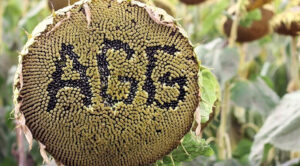
Europe will need to rethink its support of Ukraine if Donald Trump is elected president of the United States, Hungarian Prime Minister Viktor Orban said on Sunday, as the continent “will not be able to bear the burdens of the war alone”.
Orban opposes military aid to Ukraine and has made clear he thinks Trump shares his views and would negotiate a peace settlement for Ukraine.
He backs former president Trump, the Republic candidate, to beat Democratic candidate Kamala Harris in Tuesday’s U.S. election.
“We (in Europe) need to realize that if there will be a pro-peace president in America, which I not only believe in but I also read the numbers that way, … if what we expect happens and America becomes pro-peace, then Europe cannot remain pro-war,” Orban said.
Ukraine will be high on the agenda when European leaders meet in Budapest in the coming week, he said, referring to a European Political Community meeting and a more informal meeting of EU leaders due to take place.
“Europe cannot bear the burden of [the war] alone, and if Americans switch to peace, then we also need to adapt, and this is what we will discuss in Budapest,” Orban said.
Europe is jittery about how the outcome of the U.S. election will affect the war in Ukraine and the continent’s security.
Orban has angered Brussels with his close ties to Russia and opposition to aid for Ukraine.
Hungary’s foreign minister Peter Szijjarto said in July that the Hungarian government sees Trump as a “chance for peace” in Ukraine.
In July Orban said his team was assisting Trump’s aides with policies on families and migration. On Thursday, he called Trump to wish him good luck ahead of Tuesday’s election.

The presidential candidates have expressed starkly contrasting visions for America’s role in the war, as well as the NATO alliance that serves as a shield against Russian aggression.
The Ukrainian military is losing ground in eastern Ukraine at the fastest pace in years. An influx of several thousand North Korean soldiers to Russia has added an unpredictable new dimension to the most savage war in Europe in generations.
And Russian bombardments — including 20 nights of drone assaults on the capital, Kyiv, in October alone — add to the civilian casualty count every day.
Against this difficult backdrop, Ukraine is bracing for the U.S. elections on Tuesday that will almost certainly shape the course of the country in profoundly different ways, depending on who wins the White House.
Former President Donald J. Trump, the Republican nominee, and Vice President Kamala Harris, the Democratic nominee, have expressed starkly contrasting visions for America’s role in the war as well as in the NATO military alliance that has long served as a shield against Russian aggression.
Ukrainian officials — desperate to steer clear of the toxic partisan battles that could jeopardize support from their chief military backer — are seeking to find ways to make different arguments that might appeal to both camps.
Mr. Trump’s claim that he will be able to broker a deal to end the war even before he takes office along with his often-expressed dim views of Ukraine — he has even blamed President Volodymyr Zelensky for starting the war — have stoked concerns that he would force the Ukrainians into a bad deal by cutting off military support.
Mr. Zelensky, who is asked about the prospect of a Trump victory in nearly every news conference and media appearance, told journalists in Iceland last week that he “understands all the risks.”
“Trump talks a lot, but I didn’t hear him say he would reduce support for Ukraine,” he said.
At the same time, Mr. Zelensky is under no illusions about the dire consequences of losing U.S. military assistance.
“If that support weakens, Russia will seize more territory, it would prevent us from winning this war,” he told the South Korean broadcaster KBS. “That is the reality.”
Kyiv is clearly looking for ways to appeal to Mr. Trump’s well-documented transactional approach to foreign policy, with Mr. Zelensky emphasizing that helping defend Ukraine is in America’s economic interests since his country “is rich in natural resources, including critical metals worth trillions of U.S. dollars.”
In 2022, the Canadian consulting company SecDev estimated the full value of all mineral resources of Ukraine at $26 trillion, including coal, gas and oil. Strategic resources — including some 7 percent of the world’s titanium reserves, 20 percent of its graphite reserves and 500,000 tons of lithium essential for electric car batteries — are within Ukrainian territory.
Russia is already plundering some of these resources in occupied territories, according to Ukrainian officials, British intelligence and independent investigations.
Those precious resources, Mr. Zelensky said, “will strengthen either Russia and its allies or Ukraine and the democratic world.”
Senator Lindsey Graham, Republican of South Carolina and a Trump ally, made a similar point in a video he recorded with Mr. Zelensky in September. “They’re sitting on a trillion dollars’ worth of minerals that could be good to our economy,” Mr. Graham said. “So I want to keep helping our friends in Ukraine.”
Mr. Zelensky has also mentioned the possibility of using Ukrainian units to replace certain American troops stationed in Europe after the war, noting that battle-hardened Ukrainian troops could prove useful in protecting the European continent.
That may also have been an appeal to Mr. Trump’s longstanding goal of reducing America’s military presence in Europe. In 2020, he withdrew nearly 10,000 troops from Germany — about a quarter of the contingent stationed there.
“Donald Trump is entirely unpredictable — in both negative and positive ways,” said Oleksandr Kovalenko, a prominent Ukrainian military and political analyst. “Trump could very unpredictably take a stance that completely blocks aid to Ukraine, or he could just as unpredictably decide to provide Ukraine with support that neither Joseph Biden nor Kamala Harris would ever consider.”
Ms. Harris is widely seen as more predictable and likely to pursue policies similar to the Biden administration’s, which presents a different set of challenges for Kyiv.
Many Ukrainians believe that the Biden administration has been cowed by fear of a direct confrontation with Moscow, leading to an overly cautious and slow response that ultimately consigns them to a slow defeat.
“A future President Harris would need to deal with a central problem in America’s support for Ukraine: Does it want Ukraine to beat Russia and is it willing to provide the military, diplomatic and financial resources to do so?” Mick Ryan, a retired Australian Army major general and a fellow at the Lowy Institute, a research group, wrote recently.
“If the answer to this question is yes, it will require the United States and NATO to shift their strategy, and will demand a closer alignment of NATO and Ukrainian strategy to see the war through to victory,” he wrote.
Mr. Biden’s tepid response to a plan for victory that Mr. Zelensky presented on a recent trip to Washington has added to a deepening sense of frustration that has spilled into public view, with Kyiv saying it limits its options for finding an acceptable end to the war.
There is no indication that the United States will provide Ukraine with the kind of military support it believes it needs to force Russia into negotiations and no sign that Washington is ready to commit to the kind of security guarantees Kyiv views as essential to a durable peace.
Mr. Zelensky told reporters this week that America had delivered only a small fraction of the military support it pledged in a $61 billion aid package passed in April, complicating Ukraine’s ability to plan for what comes after the presidential election in the United States.
“You have to count on very specific things in very concrete time, otherwise you can’t manage this situation, you cannot manage defending lines, you can’t secure people, you can’t prepare for the winter,” he said this week.
“It’s not a question of money,” he said. “It’s always a question of bureaucracy, logistics, ideas or skepticism.”
As Ukraine continues to lose ground on the eastern front, Mr. Kovalenko, the military analyst, said that no matter who wins on Tuesday, the domestic partisan political battles that could follow the election present their own risk, sowing chaos that Moscow will move to eagerly exploit.
“What actually frightens me more is not January 2025, when the inauguration will take place, but the period right after the election,” he said in an interview. “Russia will now take full advantage of the U.S. elections, after which internal political events will dominate, distracting American society from Ukraine and other foreign policy issues.”
Constant Méheut and Liubov Sholudko contributed reporting from Kyiv.
Marc Santora has been reporting from Ukraine since the beginning of the war with Russia. He was previously based in London as an international news editor focused on breaking news events and earlier the bureau chief for East and Central Europe, based in Warsaw. He has also reported extensively from Iraq and Africa. More about Marc Santora
Source: https://www.nytimes.com/2024/11/03/world/europe/trump-harris-ukraine-election.html

Australia has handed over JDAM-ER (Joint Direct Attack Munition Extended-Range) glider bombs to Ukraine after they were retired from the Royal Australian Air Force (RAAF), Australian Defense reports.
“The Department of Defense’s Guided Weapons and Explosive Ordnance Plan, released on October 30, states that Australia will retire its 500-pound Australian-made Mk.82 JDAM-ER munitions in 2021, in conjunction with the retirement of the F/A-18A/B Classic Hornet fleet. The ADM can now confirm that at least some of these weapons were later transferred to Ukraine as part of Australia’s support to the warring nation. However, it is unclear when the ammunition was transferred to Ukraine,” the newspaper notes.
The first known use of the JDAM-ER in Ukraine was by the Ukrainian Air Force MiG-29 in March 2023, but this weapon was supplied by the United States. Only in April 2024 did Australia confirm that it had supplied unspecified air-to-ground munitions to Ukraine.
In July 2024, the Ministry of Defense announced further transfers of unspecified air-to-ground weapons as part of a $250 million package.
The JDAM-ER kit was developed by the Defense Science and Technology Group (DSTG) in the early 2000s in cooperation with Boeing and Ferra Engineering. Ferra Engineering currently manufactures the kit under an agreement with Boeing that expires in 2028.

Kharkiv-based agro-industrial group of companies NOVAAGRO Ukraine announced on October 30 that it had completed the acquisition of a 56.9% stake in AgroGeneration S.A., its press service said.
According to the press service, NOVAAGRO completed the over-the-counter acquisition of a total of 126.084 million shares from Konkur Investments Limited (Konkur) at a price of $0.036 per share, which amounted to $4.54 million. The shares were transferred on October 30, 2024.
Following the transaction, the composition of the agricultural holding’s board of directors was changed to reflect the share capital structure. It includes three new members: two executive directors representing NovaAgro, Sergiy Polumysnyi and Volodymyr Krasovskyi, and one non-executive director, Viktor Shkarban.
All previous board members, including Michael Blazer, Lev Blazer, Valery Demu, Neil Sigdu, John Shmorgun and Guillaume James, have resigned from the board.
Mr. Shkarban has been appointed Chairman of the Board of Directors of AgroGeneration, succeeding Mr. Blazer.
“These co-optations, with immediate effect, will be submitted for approval to the next annual general meeting of shareholders of AgroGeneration,” the statement said.
In addition, the new board of directors of AgroGeneration has also appointed Olga Shantyr as CEO with immediate effect. She will replace outgoing CEO Serhiy Bulavin.

TAS Dneprovagonmash LLC (DVM, Kamianske, Dnipro region), a major Ukrainian railcar manufacturing company controlled by businessman Sergiy Tigipko’s TAS Financial and Industrial Group, ended January-September 2024 with a non-consolidated net profit of UAH 53.86 million, up 5.4% compared to the same period in 2023.
According to the company’s interim reports published in the information disclosure system of the National Securities and Stock Market Commission (NSSMC), its unconsolidated net income for the period increased by 76.4% to UAH 1 billion 278 million.
The company increased its gross profit by 41.3% to UAH 136.9 million, earning UAH 67.4 million in operating profit (up 26%).
As reported earlier, in the first half of this year, TAS Dneprovagonmash cut its unconsolidated net profit three times year-on-year to UAH 18.85 million, while net income increased by 37.8% to UAH 796.5 million.
Thus, in the third quarter of 2024, the company received UAH 35 million of unconsolidated net profit against a loss of UAH 6.8 million in July-September 2023, while net income increased 3.3 times to UAH 481.46 million.
According to the report, in the third quarter, TAS Dneprovagonmash produced 139 freight cars (177 units in the first quarter and 140 units in the second quarter), accounting for 25.2% of the total Ukrainian production (23% in the second quarter), with an average selling price of UAH 2.584 million (UAH 2.215 million in the second quarter).
No products were exported in the third quarter.
As reported, in 2023, TAS Dneprovagonmash produced 378 freight cars (including for the EU market), which is 34.8% less than in 2022, while sales decreased by 40.6% to 370 units. Non-consolidated revenue decreased by 2.8% to UAH 1 billion 77 million, while net profit increased slightly to UAH 49.2 million.
TAS Group was founded in 1998 by businessman Sergey Tigipko. Its business interests include the financial sector (banking and insurance) and pharmacy, as well as industry, real estate, and venture capital projects.
Internal and external debt of Ukraine in 2010-2024

Open4Business.com.ua